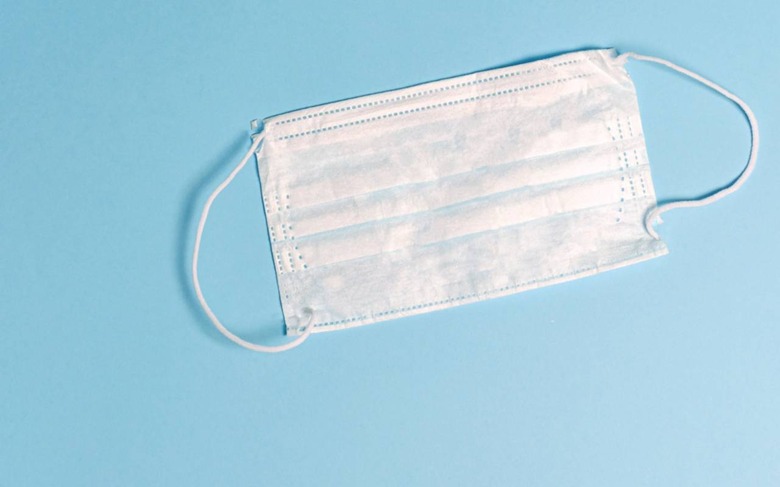CDC Director Gives Flu Shot Warning - And A Big COVID-19 Prediction
Flu season vaccinations may already be available, but the CDC's Director has cautioned against being too eager to get the shot, amid ongoing concerns that influenza and COVID-19 could cause a perfect storm of sickness this winter. Speaking on a call, CDC chief Dr. Robert Redfield advised against immediately getting a flu shot, while doubling-down on recommendations that could not only help prevent coronavirus but influenza too.
The potential for simultaneous COVID-19 and influenza pandemics has led to serious worries among healthcare professionals for the upcoming flu season. Though the flu vaccination is recommended for all people six months or older in the US, less than 46-percent of adults got the shot in the 2018-19 flu season.
That's a big deal, because the CDC says that there's a direct correlation between vaccination levels and hospitalization load. According to one CDC study, for example, the impact of increasing vaccination levels by just 5-percent could prevent 4,000 to 11,000 people being admitted into hospital with flu. While that range would depend on the severity of the season, the fact that flu cases will coexist with coronavirus cases means that any reduction in demand for healthcare providers is significant.
Despite all that, you shouldn't rush out to get a flu vaccine today, according to the CDC's Dr. Redfield. "CDC recommends getting vaccinated in September and October," he suggested."Getting vaccinated now is too early, especially for older people, because of the likelihood of reduced protection against flu infection later in the flu season."

Even with a vaccination later in the year, though, the flu shots may need to continue into early 2021. According to Dr. Redfield, "as long as flu viruses are circulating, vaccination should continue, even in January or later."
So far, the US Centers for Disease Control and Prevention have not forecast how many cases of influenza might be expected in the 2020-21 season. One possibility, indeed, is that a positive response to COVID-19 among the general population could have a knock-on effect in reducing flu cases. If people consistently wear masks and social distance, Dr. Redfield pointed out, that will not only help reduce coronavirus spread.
"I'm also hopeful that the recommendations CDC, states, locals, and even many companies and organizations have, for wearing masks and physically distancing, will mean there are decreases in other respiratory diseases like influenza and the viruses we believe are associated with AFM, enteroviruses," the CDC chief explained.
It was an opportunity for Dr. Redfield to repeat arguably one of his most controversial suggestions during the COVID-19 pandemic. Back in July, he predicted that coronavirus could be brought under control in the US in as little as 1-2 months – assuming, that is, if enough people committed to wearing masks.

"A lot of times you can have a behavior that if half of us do, we can make progress," he repeated on the recent update call. "This virus isn't going to require half of us to do the mitigation steps correctly. It's not even going to require 75% of us to get this right. We really do need to see 90, 95 or 96% or more to embrace the wearing of the mask, social distancing, hand hygiene and wisdom about of how one engages in crowded places If we all do this."
According to Redfield, "what we're asking the American public to do is to bring this virus to its knees. It's in our hands. It's in our grasp. But it is going to require all of us to embrace these mitigation steps. And we are going to need to do that for 4, 6, 8, 10, 12 weeks and then we will see this outbreak get under control."
Quite whether sufficient numbers of the American public – and indeed the politicians they elected to govern them – have the commitment and focus for that remains to be seen. Certainly, the track record on mask wearing so far in the US would indicate it's unlikely. As of August 24, 2020, there were over 5,682,000 cases of COVID-19 in the US, with the disease blamed for more than 176,000 deaths so far.
